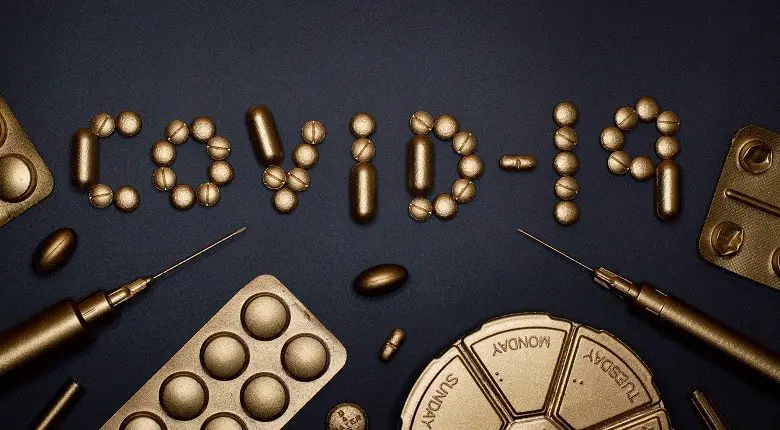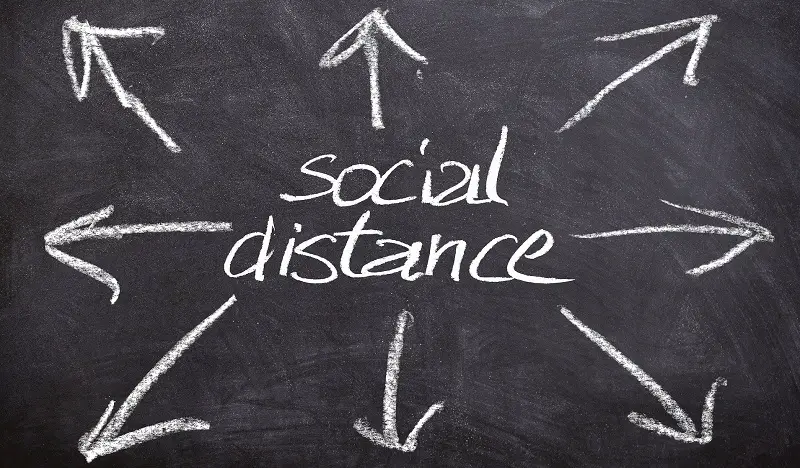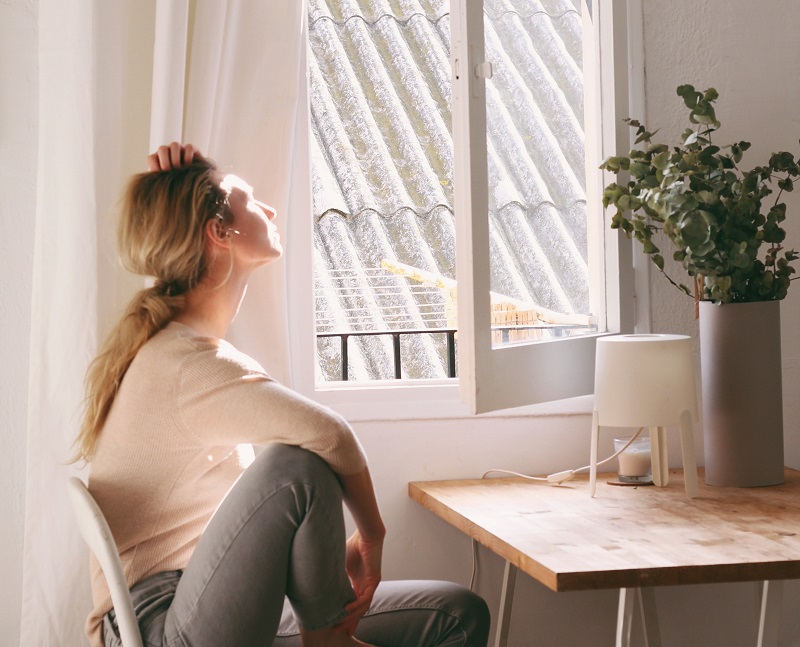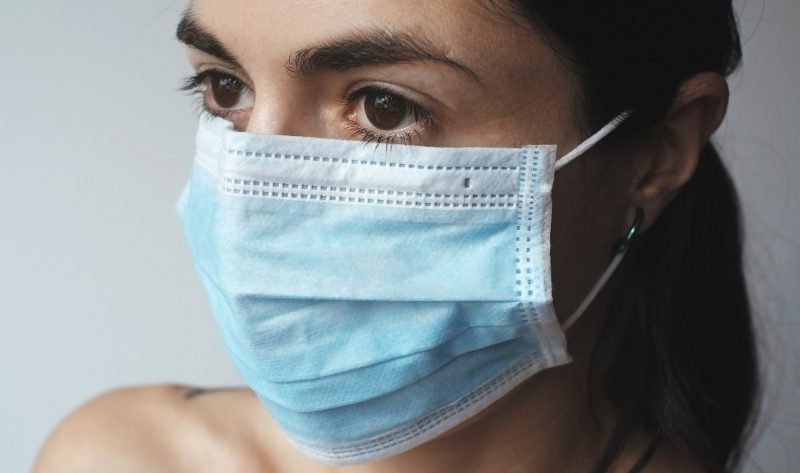
Coronavirus: how to keep safe if you use carers and PAs
While the lockdown measures have been relaxed for much of England, for those asked to shield or isolating because they’re at increased risk, they’re continuing to stay safe at home. But what if you use PAs/carers to help you? Shielding automatically becomes tricky. So how can you try to protect yourself as much as possible while still receiving care, especially if people are now going out more than they were?
Writer and wheelchair user Alex talks through tips for keeping safe, including how to cleaning your home and using PPE, and shares his experiences, as well as those of other disabled people.
The UK-wide lockdown meant that everyone had to stay at home for much of the time, hopefully bringing down the risk of infection. But now that lockdown measures have been relaxed, some disabled people are worried.
One DHorizons Tribe member said: “I’ve been managing okay whilst everyone was in lockdown, but I’m increasingly worried about things going back to normal and my PAs going out and mixing with people more.”
Coronavirus transmission
Coronavirus (also known as Covid-19) is primarily transmitted through droplets from someone who is infected.
This could be from when they sneeze or cough, their saliva, discharge from their nose or when speaking. Coughing and sneezing are the most likely ways in which the droplets will spread further.
These droplets tend to fall to the ground or onto anything nearby. If you are in close proximity and the droplets land on your mouth or nose, or you breathe them in, you could become infected.
It’s also thought by some that the virus can remain in the air in tiny aerosols (fine mist-like droplets) for up to three hours, although there will probably be much less present after just an hour.
This is less likely to be the way in which the virus spreads as it is very dependent on the situation, such as how well somewhere is ventilated and the temperature.
Covid-19 can also be transmitted via surfaces if you touch one with the virus on it and then touch your face, in particular your mouth, nose or eyes.
Buy personal protective equipment, including 70% hand sanitiser and plastic gloves, on the
Disability Horizons Shop.
How long coronavirus lives on surfaces?
A study published in the New England Journal Of Medicine in March showed that SARS-CoV-2 (the virus that causes the Covid-19 disease) can survive on:
- copper for up to 4 hours
- cardboard for 24 hours (although there were a lot of variables in this test)
- plastic and stainless steel for 72 hours.
But the research also showed that the levels of virus present decreased during the recorded time.
Another study by The Lancet in April found that coronaviruses can last on:
- paper for up to 3 hours
- treated wood and cloth for up to 2 days
- glass for up to 4 days
- stainless steel and plastic for up to 7 days.
The tests by both organisations were done at room temperature (around 22°C). But the second also discovered that higher temperatures of 30°C or more would mean the virus doesn’t last as long, something that has been proven by other studies too.
It’s also worth keeping in mind that, although SARS-CoV-2 could be found on the surfaces, the viability of the virus – i.e. whether it would cause someone to be ill – is not known.
In addition, these tests were done in lab conditions using laboratory equipment, and so don’t fully reflect the conditions in a home and how the virus would transfer from inanimate objects to humans.
But they show that regular cleaning and good hygiene are certainly worth doing to minimise risks – more on this in our section on hygiene and cleaning routine.
Protecting yourself from Covid-19 while using PAs/carers
If you have different PAs/carers coming into your house, there is a risk that they could bring the virus with them, especially if they are going out and interacting more. But there are things you can do to help minimise it.
Everyone should be practising social distancing, which means staying at least two metres away from others when outside, and only meeting with up to six people outside.

The more your PAs/carers stick to these rules or, indeed, choose to go further by isolating, the fewer risks there are likely to be.
It’s also important that they inform you and don’t visit your home if they have been in contact with someone who has confirmed or suspected Covid-19, or indeed if they themselves do.
The same goes for you – you’ll need to let them know if there is a possibility of you or someone in your household having Covid-19 (read on for more information on cleaning and using PPE if you’re unwell).
No matter what your situation or what you choose to do, it’s important that you and your PAs are on the same page. So have conversations with them, both early on and as things develop, to ensure everyone is in agreement.
One Tribe member said: “I know someone who has put a Covid-19 policy in place, which all of her PA’s have to sign and agree to so everyone is clear on expectations etc.”
Having everything written down, especially if you have a number of PAs or might need to find someone new, will make things easier for everyone.
If you’re worried about people coming too close when you’re out and about, try our social distancing lanyard and sash to help remind others about the importance of giving you space.
Hygiene and cleaning routine
- When your PA/carer arrives, they should wash their hands thoroughly for 20 seconds – watch the NHS video below on how to do this.
- Ensure they do this regularly in the same way when performing tasks for you.
- As coronavirus can live on surfaces, they should clean ones they have touched, such as door handles, light switches, stair bannisters and worktops. Get them to do this before they leave, but if you’re likely to be touching the surfaces while they are there, ask them to do it after a task.
- Don’t forget other surfaces, such as wheelchair handles, wheel rims, and powerchair controls and joysticks.
For handwashing, soap with water works best as the soap will break down the fatty layer of the virus, which deactivates it and allows it to be washed away.
But if soap and water are not available, they should use a sanitiser that has at least 60% alcohol, as these remove the virus in a similar way.
They will need to use more than they would with soap to ensure they have covered all of their hands. Make sure they massage it in as they would soap and do so for at least 20 seconds.
You can buy 70% hand sanitiser on the Disability Horizons Shop.
The Centre for Disease Control and Prevention says that while soap and water are good for removing germs from your hands, disinfectants kill germs on surfaces.
Its guide to disinfecting your home if someone is ill also has tips on cleaning electronics, soft furnishings and washing laundry.
You can also find a list of cleaning products that have been proven to kill coronavirus. These are American though, so not all will be available in the UK.
But you can use also any household bleach solution diluted and it will be effective for up to 24 hours. It needs to say that it’s intended for disinfection and have a sodium hypochlorite concentration of 5% to 6%.
To make a diluted bleach solution, mix four teaspoons of bleach per two pints of room temperature water. Make sure the bleach is not past its expiration date.
Also note that some bleaches, such as those designed for safe use on coloured clothing or for whitening, may not be suitable for disinfection.
Tests by The Journal of Hospital Infection from February show that coronaviruses can also be effectively removed using cleaning fluids containing hydrogen peroxide or 70% or above alcohol as well.
For many of these disinfectants, you’ll need to give them time to work – at least a minute but up to 10 minutes in some cases.
If you or someone you live with has Covid-19, the Government has further advice on cleaning your home and clothing.
Ventilation
The Centre for Disease Control and Prevention lists ventilation as one of the ways to minimise the spread of Covid-19.
The UK Government’s advice on shielding also recommends opening windows for your physical and mental wellbeing, especially if you’re choosing not to go out at all.
So open your windows and let some fresh air in as much as you can.

Clothing
Research has suggested that Covid-19 can live on cloth for two days. But this doesn’t automatically translate to all clothing as they can be made up of a number of different materials, including plastic and metal.
So it’s not clear how long it could survive on clothes or shoes if they have come into contact with someone unwell.
If you think your PA may not be social distancing as they should or you want to be cautious, you could ask them to bring a change of clothes to put on once they arrive at your house. This would make sure that any virus particles on their clothes will not transfer to you.
Another option is to have them wear an apron, which will help to prevent their clothes from touching you directly.
Personal Protective Equipment (PPE)
You might want to also consider getting your PAs to wear PPE, including plastic gloves, plastic aprons and a surgical mask while doing personal care.
The Government has published guidance about the use of personal protective equipment (PPE) on its website, which was updated on 21st May.
Helpfully, there is a handy table that shows when PPE should be worn in various sessions, including in people’s homes. Essentially, there are two reasons why your PA is recommended to wear PPE:
- if you or someone in your household is showing symptoms or is confirmed as having Covid-19, then PAs should wear single-use disposable gloves, a plastic apron, fluid-resistant surgical mask and possibly face shields/eye protection. This is when they are doing personal care for you, even if you’re not the person displaying symptoms or diagnosed. This is also the case if you live in a care facility.
- if you or someone in your household is in the ‘clinically extremely vulnerable’ category or are shielding, then PAs should wear single-use disposable gloves, a plastic apron and a surgical mask. This should be worn not only when completing personal care but also simply when they’re in your home.
Although these are overarching guidelines, different councils may have different rules or suggestions. Plus, the guidelines have changed in the last month.
Having spoken to people on the DHorizons Tribe, people are using PPE in a variety of ways.
Vanessa Aguilar has used PPE as much as possible, but still became ill with Covid-19: “My main carer – who got Covid-19 – actually used two face masks, one on top of the other, on some days, as well as gloves and apron.
When one of the other visiting carers came to me in the bathroom without a mask, I asked her to get one, which she did.
When I brought that up with the agency, it said the local authority had told them that PPE was only necessary if the client had tested positive of Covid-19. I wasn’t happy and told the agency I wouldn’t accept that.”
Georgina Moore has decided not to use PPE. She said: “I have a team of 5 carers as I have 24-hour care. They are employed by myself through direct payments, not an agency. I made the decision not to ask them to wear PPE unless I was displaying symptoms.
This is for two reasons. 1. I would rather PPE go to frontline staff and 2. they work long shifts and it would be so uncomfortable for them. I’ve had no problems and if they had ANY symptoms they would not be allowed in.”
Buy personal protective equipment on the Disability Horizons Shop, including disposables face masks, plastic gloves, aprons and face shields.

How to manage PAs/carers during Covid-19
I am quadriplegic and use a powerchair, so I need 24-hour assistance and help with all personal care. Usually, I have two PAs who live with me for 10 days at a time before swapping over. I employ them both directly.
When the virus came to the UK, we decided it would be safer to have just one PA. Thankfully, they were very willing, and one has agreed to stay at my house for as long as needed. So far he’s been here for nearly two months, but he has the weekends off. At that time, my parents take over my care.
Having spoken to members of the DHorizons Tribe, it seems others are opting to have live-in carers too. George Baker said:
“I made it clear very early to my team that we’d be taking extreme precautions, so I’ve organised a temporary live-in situation. I have two teams of PAs who live in on a three-week rolling rota. Two of them live here at a time and do my care between them. When they are not living in they stay fully self-isolated.
Having people live-in has turned a horrible situation into something quite fun and positive. We’re all completely isolated at my house so nobody is worried about catching it and we can support each other etc.”
Not everyone has the option of getting a live-in carer, but a lot of people are still choosing to reduce the number of PAs that they have visiting.
Martyn Sibley, Co-founder of Disability Horizons, has also decided to use just one PA during the Covid-19 outbreak. In addition to being the only PA he has, she isn’t going out much, other than to see Martyn.
Parent Duncan Edwards, whose disabled son requires 24-hour care, is also using a limited number of carers who only care for his son.
Whatever you’re doing, it’s also worth making sure you have a back-up or ‘plan b’ in case someone falls ill. Consider getting alternative or additional PAs through local agencies or PA services, such as PA Pool or Supercarers.
If you’re having difficulties with getting the PA support you need, the government advice is to contact your local authority or Clinical Commissioning Group for help.
The Government has further guidance for people who employ their own PAs using direct payments.
By Alex Squire
More on Disability Horizons…
Hi Alex,
Great article. How does using less PA’s work practically for everyone involved? When you and your team decided that one of them would live with you, how does the other PA manage? Presumably as one was/is living in you would need to pay them for the extra hours which means your other PA has had no income from you for a couple of months. If I couldn’t of stayed with parents I’d be in a similar situation but can’t see how people manage not being paid for any length of time.